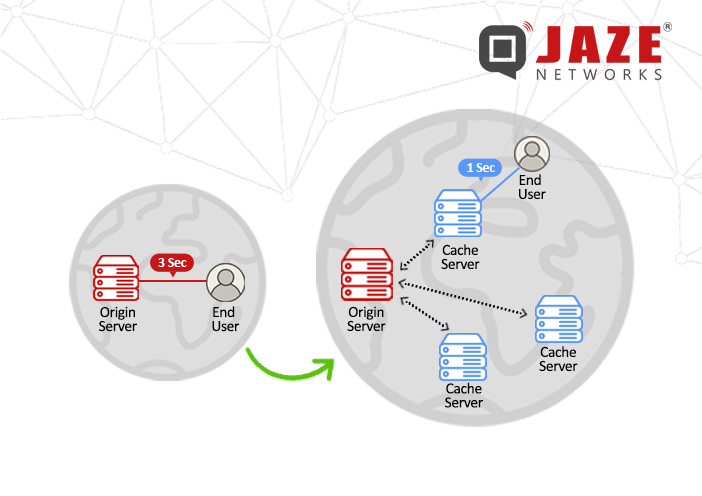What is a Content Delivery Network (CDN)?
A Content Delivery Network (CDN) is a distributed group of servers spread across various geographic locations, working together to efficiently deliver Internet content. The primary role of a CDN is to enhance the speed, availability, and security of websites by serving content closer to the user.
CDNs are widely used to transfer web assets like HTML pages, JavaScript files, stylesheets, images, and videos. The growing reliance on CDN services means that a significant portion of today’s web traffic, including content from major platforms like Netflix, Amazon, and Facebook, is delivered via CDNs.
How Does a CDN Work?
The key to a CDN’s functionality lies in its geographically distributed network of servers. Here’s a simplified overview of how a CDN works:
- Content Distribution: When a website integrates with a CDN, its web pages and other assets are copied to multiple servers across different locations. These servers, also known as Points of Presence (PoPs), cache the website’s contents.
- User Requests: When a user requests a webpage, the CDN redirects the request from the origin server (where the website is hosted) to the nearest CDN server in the network. This ensures that content is delivered from a location closer to the user, minimizing latency.
- Cached vs. Non-Cached Content: If the CDN has already cached the requested content, it delivers it immediately. If not, the CDN will retrieve the content from the origin server and then cache it for future requests.
- Seamless Process: The process is nearly invisible to the end user. Users may not even realize a CDN is involved, except when the content is delivered from a URL slightly different from the original site’s.
By distributing content in this way, CDNs are able to significantly enhance the performance and reliability of websites.

Key Benefits of Using a CDN
The advantages of using a CDN can vary depending on the size and needs of the website or application. However, the four primary benefits of a CDN are:
1. Reducing Bandwidth Costs
One of the biggest expenses for websites is the cost of bandwidth consumption for hosting. CDNs help reduce these costs by caching content, thereby reducing the load on the origin server. Since the CDN handles a significant portion of traffic, website owners can save on bandwidth expenses, making their operations more cost-efficient.
2. Improving Content Availability and Redundancy
Websites often face the challenge of handling sudden spikes in traffic or dealing with hardware failures. A CDN, with its distributed infrastructure, can easily manage large volumes of traffic and better withstand hardware failures. This ensures that the website remains accessible even under heavy load, improving uptime and reliability.
3. Enhancing Website Load Times
Speed is a crucial factor for user experience. By serving content from servers that are closer to the end user, CDNs significantly reduce latency and enhance page load times. Faster loading websites are less likely to lose visitors due to slow performance, leading to reduced bounce rates and increased engagement. Studies show that users are more likely to leave a website if it takes too long to load, so CDNs play a vital role in improving visitor retention and satisfaction.
4. Strengthening Website Security
CDNs offer a range of security features, such as DDoS (Distributed Denial of Service) mitigation, improved SSL (Secure Sockets Layer) certificates, and other security optimizations. By distributing traffic across multiple servers, a CDN can help protect a website from DDoS attacks, where a server is overwhelmed by a flood of traffic. Additionally, by keeping malicious traffic away from the origin server, a CDN reduces the risk of cyberattacks and ensures that sensitive data is better protected.
CDNs play a vital role in the modern internet ecosystem by ensuring that web content is delivered quickly, reliably, and securely. Whether you’re running a small blog or a large e-commerce site, leveraging a CDN can provide significant benefits in terms of performance, cost savings, and security.
Most of the large CDN networks are available through peering at IXs. This helps ISPs who peer with them to significantly reduce bandwidth costs and deliver content faster. Jaze ISP Manager integrates with all leading BNGs which support multiple QoS policies to prioritize CDN traffic over other traffic streams. Click here to learn more






